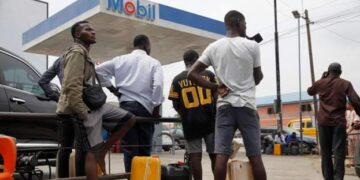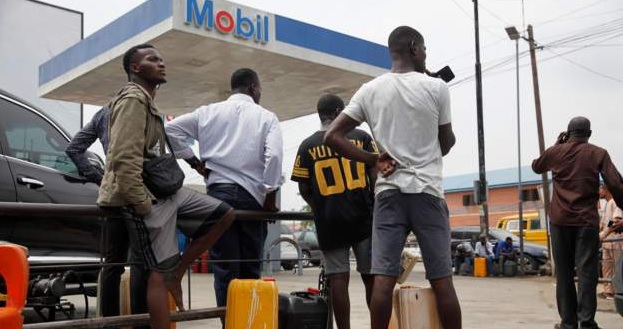By John Ikani
Fuel shortages have worsened in Nigeria, causing disruptions to businesses, particularly in Lagos, the bustling commercial hub.
Public transport services came to a standstill on Monday, leaving commuters stranded or forced to pay inflated fares, according to reports by privately-owned Channels Television.
Motorists faced long queues and hours of waiting at the few operational petrol stations, with many stations shuttered due to supply shortages from the once state-owned oil company.
The scarcity has led to a surge in black market prices, soaring up to three times the regular rate.
Last Thursday, the capital city, Abuja, along with neighbouring Nasarawa and Niger states, witnessed a resurgence of long queues at petrol stations.
Despite assurances from the Nigerian National Petroleum Company (NNPC) that there was no need for panic buying and that there was sufficient fuel, concerns persisted among the public.
READ ALSO: Nigeria: Tribunal Stops South African PayTv Provider From Hiking Subscription Rates
NNPC attributed the limited availability of petrol to logistical challenges, which they claimed to have addressed promptly.
Contrary to reports suggesting fuel rationing and preferential treatment to Abuja, NNPC spokesperson refuted these claims, as reported by The Punch newspaper.
The company maintained that it was not restricting fuel supplies to retailers and denied prioritizing the capital city.
Nigeria, despite its status as one of Africa’s largest economies and oil producers, grapples with frequent fuel shortages, a paradox that continues to puzzle observers.




































